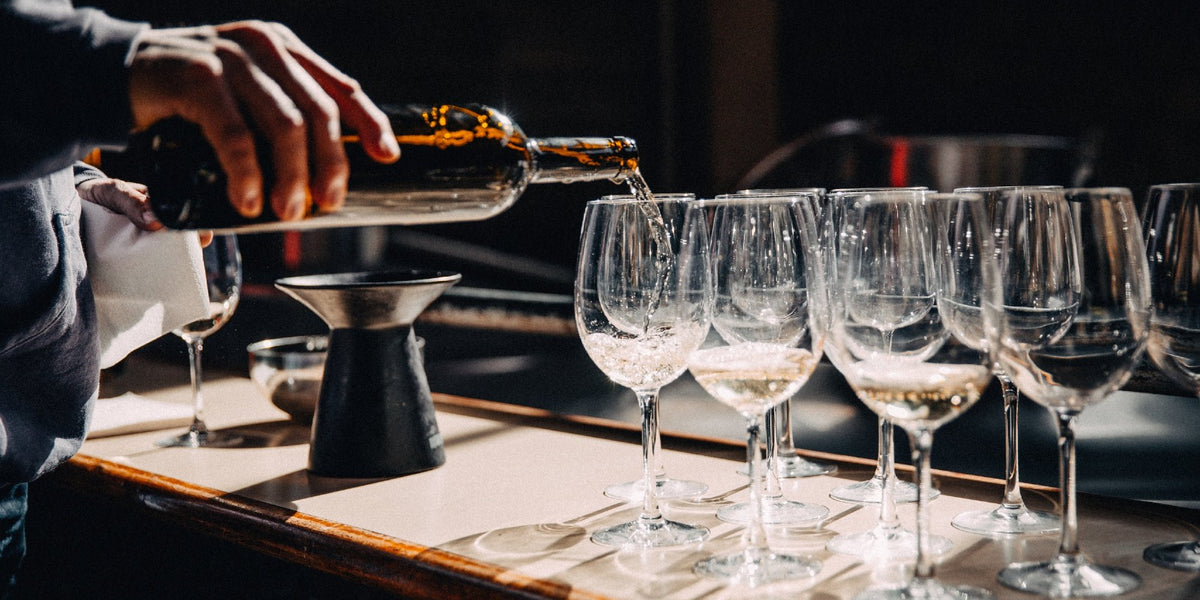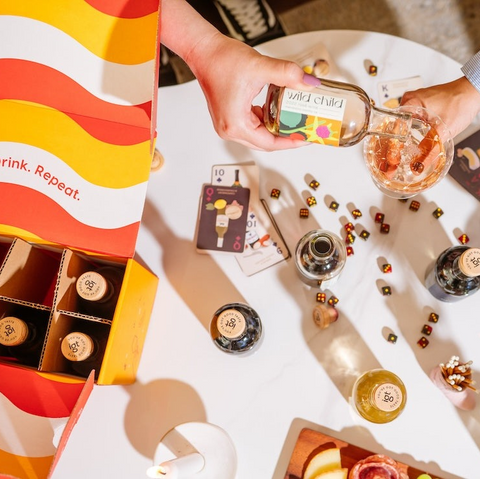A Story of History & Heritage
The U.S. wine industry is notoriously difficult to tap into, and in a trade that is often as wealthy (and non-diverse) as they come, it can be particularly difficult for winemakers, vintners, and sommeliers of color. We salute our unsung heroes of the past, who made waves and paved the way for other Black Americans in this industry. Today’s Black wine leaders are positioned to make their own memorable mark.
Throughout its relatively young history, the average American has primarily enjoyed beer and spirits, while wine was thought of as something reserved for the upper-class members of society. Before the age of the internet (circa 1998), access to wine and wine knowledge for the average American was limited. It was even more limited for Black and brown communities, who were generally not prioritized and often overlooked. So, it is little wonder that, as with many other industries, the history, growth, and expansion of Black-owned wine may seem as scattered and small as seeds on the plain. But seeds that are sown and nurtured with care can grow into monumental feats.
John June Lewis, Sr
We are all familiar with John Lewis, the late Black American representative, statesman, and Civil Rights activist who encouraged all Americans to “never be afraid to make some noise and get in Good Trouble, necessary trouble.” In Good Taste even named a line of wines after his call to action: the 2020 Good Trouble Fair Play Zinfandel and the 2021 Good Trouble Syrah.
You may, however, be less familiar with John June Lewis, Sr., who is recognized as the first Black American winemaker in the U.S. John June Lewis, Sr. fell in love with wine and viticulture while stationed in France during World War I. Shortly after prohibition ended, he inherited land in Clarksville, Virginia, and by 1933, he began to grow his first grapes on the land. In 1940, Lewis opened Woburn Winery and sold his wines to locals until he passed in 1974. The Woburn Winery is the first Black American-owned winery in the U.S. and is believed to have been the only Virginia winery to produce wine solely from its own grapes at the time.
Ires Rideau
In 1989, Ires Rideau, an entrepreneur and social activist from New Orleans, purchased six acres of land in the Santa Ynez Valley. Though she knew little about the wine industry at the time, her business bloomed, and six years later, she purchased 24 more acres for the Rideau Vineyard. Rideau was the first Creole American and Black woman to own and operate a winery in the U.S. She grew several different Rhȏne varietals and focused on making wines that complemented the Creole cuisine of her roots. The winery is still in operation today, although Rideau is no longer the owner.
The Brown Estate
In 1985, the parents of Deneen, David, and Coral Brown purchased what would eventually become The Brown Estate. As the first Black-owned vineyard in the renowned wine region of Napa, California, The Brown Estate got its start by providing grapes to other local wineries. By 1995, the Brown siblings decided to try their hand at winemaking, growing, blending, and bottling on the estate purchased by their parents. In 2000, the trio saw sweet success with a spotlight in Wine Spectator magazine about their family estate and Zinfandel wines, but the celebrations were short-lived as their warehouse caught fire, and they lost all of their 1996, 1997, and the freshly bottled 1998 vintages. However, as a phoenix rises from the ashes, so too has this black diamond of the California wine region, producing Zinfandel, Chardonnay, Merlot, and more.
The McBride Sisters
The McBride Sisters are another leading Black-owned (and woman-owned) wine company in the U.S. These two sisters grew up in wine regions a world apart from each other – in Monterrey, California, and Marlborough, New Zealand – and connected over their shared love of wine, with a mission to advance inclusivity and sustainability in the wine industry. One such initiative is their Black Girl Magic collection, designed to encourage consumers to support Black-owned brands.
Andre Mack
Andre Mack is the first Black American to be named Best Young Sommelier in America (2003) and runner-up to Best Sommelier in North America (2004) by the world’s oldest and largest wine and food society, the acclaimed Chaîne des Rôtisseur. As winemaker and owner of Maison Noir Wines out of Oregon, Mack makes great wines with eye-catching, hip-hop themed labels and names that appeal to a younger generation of wine lovers.
Many minority-owned wineries can attest to the uphill battle to break into the wine industry. Distribution companies, sales representatives, and banks have historically shown hesitance to work with BIPOC winemakers, leading to limited visibility in the industry. In turn, these winemakers create smaller amounts of wine and often don't have tasting rooms or their own wineries, and so are opting to control their own destiny and start up as Direct-to-consumer, meaning that you can purchase directly from the winery but can't purchase their products from stores. It can take some legwork on the part of the consumer to seek out inclusive wine options, but it is well worth the hunt.

Photo/Caption by Virtual Tasting Host Tuanni Price
BIPOC Wine Foundations
With this in mind, many nonprofits have started to help elevate and allow access to wine education at both the professional and the consumer end of the spectrum. The Roots Fund, for example, was started to "empower Black and Indigenous people in the wine industry." Some nonprofits are specifically targeting consumers who simply want to be more educated when they are buying wine. The Hue Society was created by Tahiirah Habibi as a safe place for BIPOC to learn and explore as well as find resources to support their wine journey.
Many of these groundbreaking Black-owned wineries and Black winemakers make a point to "hold the door open" for others who may be looking to learn more about wine and the wine industry. In doing so, they lay to rest some of the assumed pretentiousness that often comes with wine, as when offering somewhat unconventional wine pairings, such as wine with music instead of food. Sommeliers are encouraging younger, more diverse wine lovers to enter the arena as consumers and professionals as well, with an aim to continue making wine more accessible and encouraging everyone to enjoy and take pride in it, regardless of their background.










